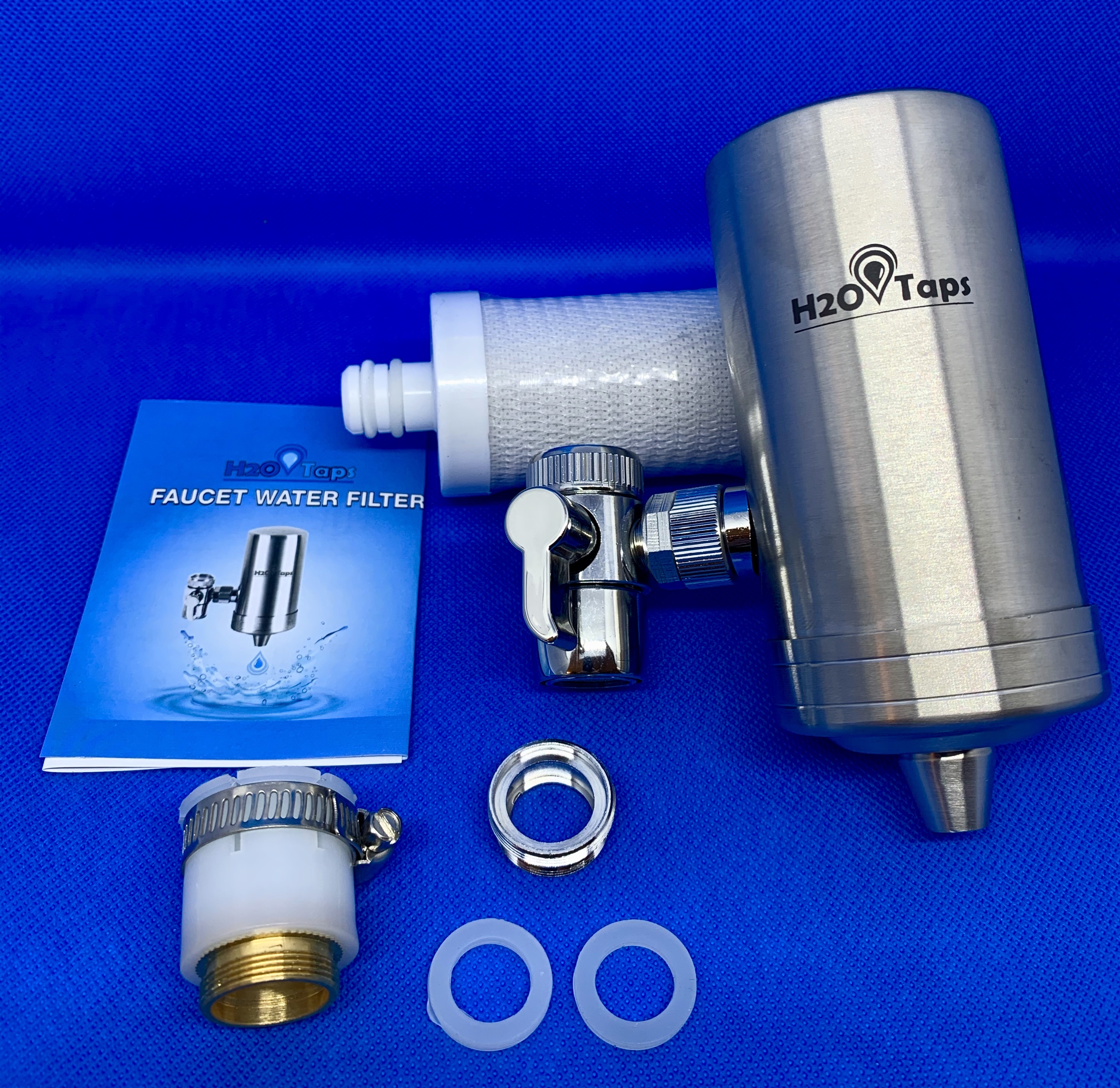For economic and environmental reasons, many people today choose to abandon bottled water for tap water.
It is even possible to use water from a well or a rainwater collector by improving its quality thanks to a filtration system.
Filter cartridge, magnetic filter, anti-limescale, activated carbon or sediment, the domestic water filter is available in several forms.
How does it work ? Why choose this water treatment solution over another?
What are the criteria to take into account before buying your water filter? Get the answers straight away via our comparison of cheap water filters .
How a water filter works
Although tap water is considered drinkable, it may contain traces of antibiotics and other foods that can impact our body in the long term. Strictly speaking, therefore, it is not totally pure. In order to get rid of these water polluting agents , the installation of a water filter is an effective solution without risk to health.
Unlike the water softener, the operation of the water filter is simple, knowing above all that its main mission is to facilitate the purification of water for domestic or professional use.
In fact, all you need to do is put the water filter on the tap or under the sink to prevent the infiltration of pollutants. The water thus filtered will ensure a pleasant taste while being digestible.
Good to know: Attaching the water filter under the sink requires some DIY work. If in doubt, you can hire a plumber to do the installation.
The different types of water filter
Industrial water filter, domestic water filter… the water filtration systems available on the market are available in several types depending on individual needs. Today we are going to take a look at the most used and widespread models.
Filter cartridge filters
Generally recommended to reduce water turbidity (cloudy water), cartridge filters are capable of retaining suspended particles. It is a purely mechanical filtering system which does not use any active principle.
Depending on the size of the pollutants to be captured, it is possible to adjust the filtration capacity by choosing the appropriate filtration diameter. This varies from 5 to 100 microns.
Thanks to their particular characteristics, cartridge filters are suitable for several uses, whether it is to filter the micro particles contained in tap water, or to capture the sand that may be present in a rainwater collector.
Although these devices are often washable, it is recommended to regularly replace the cartridge filters by opting for the most resistant wound filters.
Magnetic filters
Like polyphosphate filters, magnetic water filters are designed to limit or even permanently remove lime or scale through magnetic waves.
Both discreet and compact, these models are easily installed in the kitchen and have the main advantage of not requiring any consumables. Models with permanent magnets don't even require energy to operate.
Polyphosphate filters
This type of water filtration system incorporates an active compound with the aim of limiting, or even completely eradicating, any presence of lime or scale.
Being able to be installed before the devices to be protected (at the arrival of a cumulus tank for example) or at the head of the network (after the meter), polyphosphate filters are essential to prevent scaling of sanitary installations and pipes in their whole.
Depending on the capacity of the filter and the water consumption, the active compound should be recharged once or twice a year.
Sediment filters
Designed to protect filters installed behind them or to stop large materials in the water, sediment filters or “pre-filters” have a filtration capacity of up to 20 microns.
These devices are often installed at the head of the network (after the meter) in order to limit the clogging of activated carbon filters or cartridges, and thus extend their lifespan and optimize their maintenance.
Activated carbon filters
Designed to protect filters installed behind them or to stop large materials in the water, sediment filters or “pre-filters” have a filtration capacity of up to 20 microns.
These devices are often installed at the head of the network (after the meter) in order to limit the clogging of activated carbon filters or cartridges, and thus extend their lifespan and optimize their maintenance.
The use of activated carbon in domestic water filtration only brings benefits for the family. It removes or even reduces not only the presence of chemicals in the water, but also the turbidity of the water as well as the level of certain heavy metals.
For example, activated carbon filters are recommended to soothe the taste of chlorine in tap water and make it taste neutral.
These devices can be installed at the head of the network to reduce the clogging of the coal, knowing that it will have to be replaced at least once a year.
Why choose a water filter?
The installation of a water filter at home does not necessarily mean that tap water is not potable. There are several scenarios that justify the use of such a device at home. But today, let's take a look at the most common reasons that lead households to invest in this water filtration system rather than another.
Drinking water filtration
Whether your water comes from a well, the public distribution network or a catchment, it is essential to correct certain parameters in order to improve its quality.
This intervention allows you to obtain drinking water for your domestic consumption on the one hand, and to preserve your heating system or your household appliances on the other hand.
In all cases, the water filtration system is often used to remove or even limit the presence of lime and scale. By using the right filter, it is possible to trap suspended matter thanks to this principle.
Rainwater filtration
In addition to filtering drinking water, the water filter can also be used to rid the water in a basin or a recuperator of all impurities or other suspended matter.















No comments:
Post a Comment